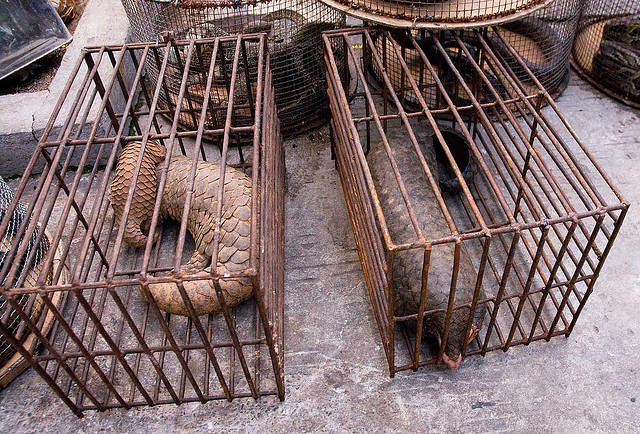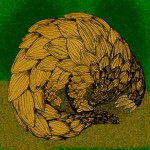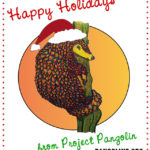In the nation’s fifth pangolin bust of the year, Malaysian officials have seized yet another 46 pangolins from a wildlife smuggler.
According to The News Strait Times, Malaysia’s wildlife management agency, Perhilitan, discovered the frightened and bound animals in the boot of a vehicle that they stopped at a traffic light, after apparently following it for about 30 kilometers.
The report says the suspect had been under investigation prior to the incident, thanks to a tip-off from the public.
Information provided by everyday citizens is key in enabling law enforcement to seize scaly anteaters and other wildlife from the illegal trade.
Unfortunately, the suspect reportedly fled the scene — something that seems to happen frequently in pangolin busts across East and Southeast Asia — and authorities claim the search for him is ongoing.
State Perhilitan Director, Rahim Ahmad, said that four of the defenseless creatures were juveniles and that the agency plans to return all 46 of them to the wild where they belong.
275 pangolins seized in Malaysia in 2012
Including this incident, media has reported on at least five pangolin busts made in Malaysia so far this year, which have involved the confiscation of no less than 275 pangolins.
- February: The Species Survival Commission’s Southeast Asia Campaign reported that 67 pangolins were seized from a boat and two Indonesian nationals were arrested
- March: 50 pangolins were seized at Kuala Lumpur International Airport (KLIA)
- March: 18 pangolins were seized and a known wildlife smuggler was arrested
- May: Officials seized 94 pangolins from a shipment, but no arrests had been made at the time the case was reported by media
Elsewhere in the world, media has reported on at least an additional five seizures in Thailand, three in Vietnam, three in Zimbabwe, two in the Philippines, and one each in Nepal, Pakistan, China, India, and Uganda — for a minimum total of 23 such busts since the start of 2012.
An estimated 600-700 of the scaly anteaters are reflected in those made between January and April.
Headed for extinction
Demand for these animals stems primarily from China and Vietnam, where the flesh is consumed both as a delicacy and for perceived ‘health benefits’, and other parts of their bodies — particularly the scales — are used to make ‘cure-all’ traditional Chinese medicine remedies.
However, there are no scientific evidence to back any of the medicinal claims made about pangolins.
In fact, their scales are made of keratin — the same protein that comprises rhino horn and human hair and nail — and laboratory studies have confirmed that rhino horn is void of any curative medicinal properties.
An estimated 41,000 pangolins (and perhaps as many as 60,000) were killed for this illegal trade in 2011.
‘Medicinal use‘ pangolin farms in China seem to have been stimulating the demand for the defenseless creatures.
Author: Sarah Pappin. Read more about Sarah here.
Image by Dan Bennett via Flickr
Want to help? Check out our pangolin t-shirts: Project Pangolin is contributing $2.00 per t-shirt or hoodie to Education for Nature-Vietnam.





![Baby Pangolin Sticks Out His Tongue [Video]](https://www.pangolins.org/wp-content/uploads/2012/02/BabyCapePangolinTongue-150x150.jpg)

Comments are closed.